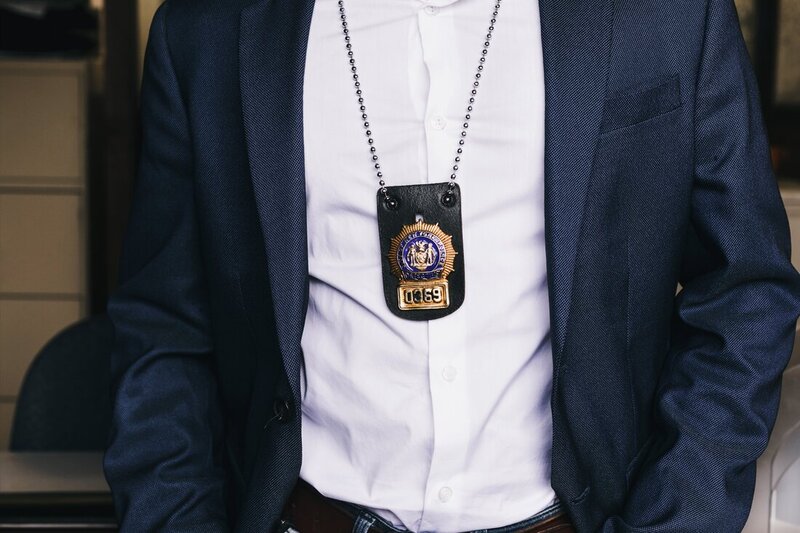|
It’s a scary moment for most. Two FBI agents in dark suits knock on your door unexpectedly. They introduce themselves and ask if they can come in and chat with you for a bit. They are probably friendly and full of smiles too. But the risk of mishandling this interaction can be serious. So what should you do? Don't Panic.First and most importantly, do not panic. Law enforcement officers, whether federal agents or local police officers, are simply doing their job, which includes interviewing potential witnesses and following up on leads. While you may be the target of their investigation, it is also possible that you are simply a witness or potential witness. Panicking will only serve to cloud your judgment and make it more difficult for you to react appropriately. Get as Much Information as You Can.While the agents or officers are there to get information from you, it is wise for you to do the same of them. Be sure to get their names, ask to see their badges to confirm their identities, and ask for their business cards because you will likely forget their names otherwise. That way if your attorney needs to follow up with them afterwards, your attorney will know who to contact. Ask them for the reason for their visit, and find out if they have a warrant. If they do, you should not do anything to obstruct their execution of the warrant. Remember that disagreements about the legality of a search warrant are resolved in court, not on the scene. Do Not Make Any Statements Without Consulting an Attorney.The investigators will likely ask you to let them in. But unless they have a warrant authorizing them to enter your home, you have no legal obligation to allow them in. Keep in mind that once you invite them inside, they have the right to look around and observe the surroundings of the area you allow them into, even without a warrant. That is because you voluntarily allowed them to do so. So the better approach is to speak with them outside of your home and to not invite them inside without a warrant. Perhaps most importantly, you should not make any statements that could potentially be used against you without first consulting with an attorney. You may not always know what types of statements may later incriminate you, especially if you’re unsure about the nature or scope of their investigation. As such, the safest option is to decline to make any statements until you have consulted your attorney, even if the agents insist that you are not the target of their investigation. You should also be firm and stand your ground on this point. Keep in mind that law enforcement officers are trained to push people into making statements, so expect pushback from the agents the moment you tell them you do not want to make any statements without consulting an attorney. But you are well within your rights to do so, and you should not cave in to any pressure to waive your Fifth Amendment right to remain silent. Do Not, Under any Circumstances, Lie to Law Enforcement. This is where many people get in trouble. They panic and get nervous, even if they know they did not do anything illegal. Or perhaps they realize that a family member or friend could be in trouble, and they decide to protect them by misleading law enforcement. That is a terrible idea. Lying to law enforcement has serious consequences and leads to steep penalties under both federal and Virginia law. Federal Law Penalizes Lying to Federal Agents.Federal law, Title 18 United States Code § 1001 makes it a serious criminal offense do any of the following in connection with a matter under investigation by any branch of the federal government:
A conviction for violating this statute is punishable by up to five years in prison, and the penalty is increased to up to eight years if the violation is related to investigations of terrorism or certain other crimes. Virginia Law Punishes Obstructing Investigations.Virginia also makes it a criminal offense to knowingly lie to law enforcement during an investigation of another person. Virginia Code § 18.2-460 classifies this offense as obstruction of justice, a crime punishable as a Class 1 misdemeanor, with a penalty range of up to twelve months in jail and/or a fine of up to $2,500.
So instead of lying to law enforcement, simply exercise your constitutional right to remain silent and your right to consult an attorney before making any statements. As soon as the agents or officers leave, contact an experienced criminal defense attorney who can advise you on whether it is in your best interest to speak with the investigators or to maintain your right to remain silent. If you have been approached by law enforcement officers, call the experienced attorneys at Elsayed Law PLLC today.
2 Comments
6/14/2022 11:43:40 am
It made sense when you mentioned that interviewing potential witnesses is part of a law enforcement officer's job. My friend told me that she wants her team to be better officers. I think they should seek guidance from a firm that provides law enforcement consulting.
Reply
Thanks for helping me understand that being convicted under federal law would have a punishment of at least five years in prison. With that in mind, it would be a good idea to hire a federal crimes lawyer when you want to sue a person or an organization who has wronged you. It will definitely be a great way to ensure that you get the justice you deserve.
Reply
Leave a Reply. |


 RSS Feed
RSS Feed
